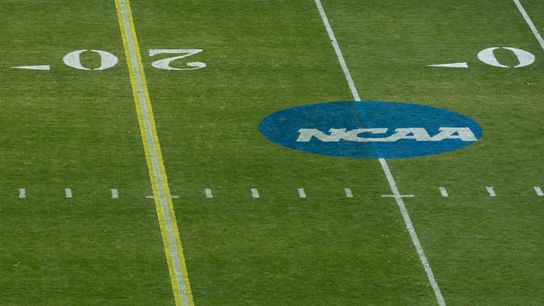In moves that have been expected for months now, the NCAA Playing Rules Oversight Panel on Thursday approved a number of changes to modernize and synchronize the management of football games.
In games involving FBS teams, in-helmet communication will now be permitted for one player on the field for each team. Like the NFL, the player will be marked with a green sticker on his helmet. The radio will cut off with 15 seconds left on the play clock or when the ball is snapped, whichever comes first.
In all three divisions, teams will now be permitted up to 18 tablets to view in-game video. Video can include the TV copy, sideline video, or the all-22 angle from the end zone. All team personnel will be permitted to view the video, but tablets cannot be connected to an overhead projector or any other devices that would display larger images, and any in-game analytics or data may not be accessed.
The committee is open to listening to proposals for in-helmet communication below the FBS level; proposals must be made by June 15.
Additionally, the Panel approved the adoption of the 2-minute warning in each half. The justification for this is that it will synchronize the change to new timing rules (10-second runoffs, stopping the clock for first downs gained in bounds), and is expected to replace, not add on to, existing TV timeouts.
Other rules changes:
-- Division III has adopted the rule Divisions I and II used where the clock will run for first downs gained in bounds, except for the last two minutes of each half.
-- Conferences now have the option of using a collaborative replay system. This rule existed on an experimental basis previously.
-- Horse-collar tackles occurring inside the tackle box will now incur a 15-yard penalty. Previously, this play was not a penalty.
-- TV partners can now conduct interviews with head coaches following the first and third quarters. This practice also previously occurred on an experimental basis.
As always, stay tuned to The Scoop for the latest.
